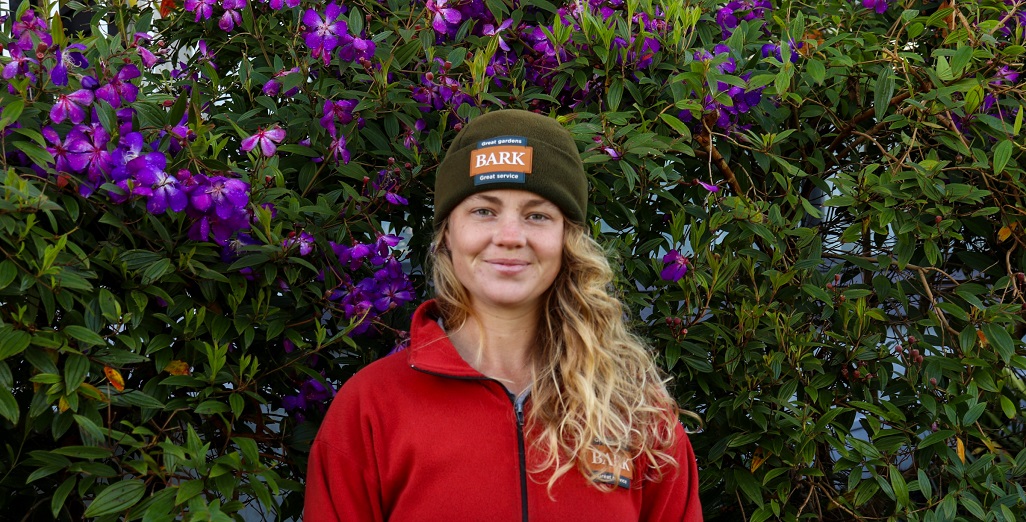Sign up here to subscribe to the Grower2grower Ezine. Every two weeks you will receive new articles, specific to the protected cropping industry, informing you of industry news and events straight to your inbox.
Jul 2019
Growing a Workforce at Home
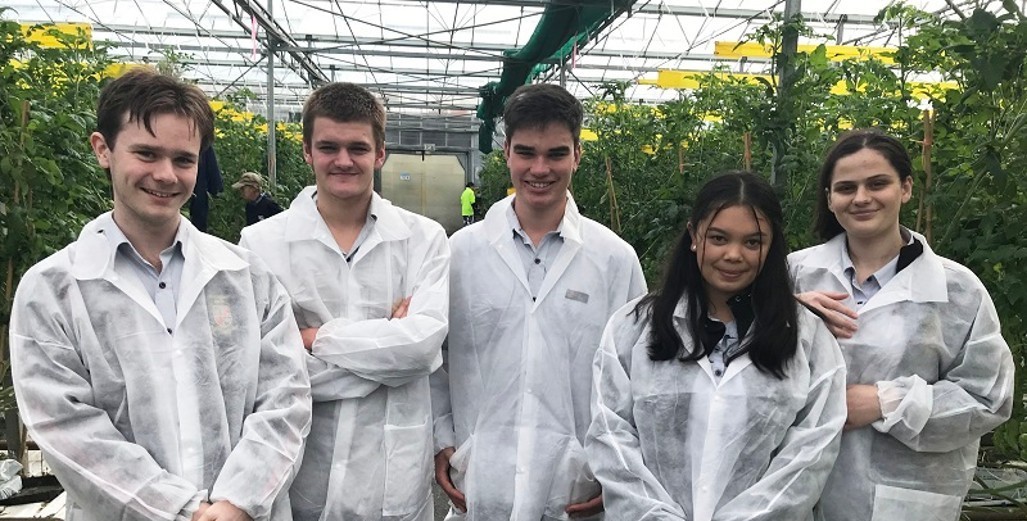
Primary ITO Facilitates Career Pathways For Students
Franklin teenagers are planting the seeds of their future – right in their own backyard.
Twelve Pukekohe High School students are taking part in a pilot programme forging a partnership between the school and local growers desperate for qualified staff.
Under the Horticultural Pathways initiative, the students spend one day a week with different horticultural growers having real-work experiences in a wide range of roles.
It has opened their eyes to the industry and the potential careers in their own community.
And they admit they’ve been blown away by the huge range of jobs involved.
“It’s not just sticking plants in the ground and watching them grow,” one says.
Their work experience spans from fruit production and outdoor vegetables to indoor crops and nurseries.
And while they’re learning about growing, harvesting, packing, machinery maintenance and crop agronomy, they also get to meet key personnel in different roles – from chief executives and marketing managers to data analysts, agronomists, quality assurance specialists and team supervisors.
Already some are looking at studying genetics at university or seeking on-the-job roles in quality assurance.
.jpg)
T&G Global’s Andrew Hutchison explains the science behind growing tomatoes to Carmen Nolan, Christine Adams and Jack Haddon.
The driving force behind the scheme is Pukekohe High’s Agriculture & Horticulture Department head Dave Matthews.
It’s been his vision since he started at the school in 2017 and found that horticultural studies were not as strong as they could be “considering we’re right slap-bang in the middle of all these growers who can’t get skilled staff”.
Matthews had been involved with setting up vocational pathways training for years so it was natural for him to start thinking of setting up a scheme for horticulture.
He began by talking to NZ Hothouse managing director Simon Watson who he met through the Bombay Rugby Club.
Then he took his ideas to Hunua MP Andrew Bayly who realised their potential and began putting Matthews in touch with his networks.
Bayly says after he became an MP in 2014, he was astounded to find there was no pathway for local students to train in the skills needed by local growers.
“That seemed crazy when the growers were crying out for people.
“There was general support among the industry for such an initiative but the biggest barrier to getting a successful programme in place was finding the right person to drive the concept forward.
“Everyone is grateful that Dave Matthews picked up that cudgel.”
Together they worked to set up an advisory group involving the school, the growers and the Primary Industry Training Organisation.
Punchbowl, IntaAg, T & G Global, A S Wilcox and the Pukekohe Vegetable Growers Association all signed up to help.
Their representatives have been meeting regularly for the past 18 months while they work through the complex issues involved in getting the initiative started.
The pilot finally launched in May when six of the students began their work experience out in the field with the growers. The second group of six students will get their chance in term 3.
Matthews was thrilled to see the pilot finally underway and to find the students buzzing about what they’re learning.
His biggest challenge in setting up the programme has been breaking down the perception of the industry among the students “and more so their parents”.
“They don’t really understand the industry and what it can offer. They don’t see horticulture as a viable career path or the huge range of jobs it offers – it’s so much more than just planting vegetables.”
New Pukekohe High School principal Richard Barnett wasn’t so difficult to convince – he’s been right behind Matthews and his ideas.
“He’s been fully supportive and offered to help wherever he can,” Matthews says.
“Money’s tight but he’s allowed me to rearrange the curriculum so I can offer three horticultural options. That all affects the timetables so it’s a big ask.”
Growers have also backed the scheme by providing mentors to share their knowledge and expertise with the students.
And the Primary ITO has supported it with two staff members involved at the school level and on-the-job training.
“These students are one way of addressing future skill shortages in the area,” says production horticulture training adviser Kay Airey, who works closely with Michelle Turner in the ITO’s schools team.
Primary ITO sees the programme as a way to “feed the pipeline” of qualified people into the industry, Airey says.
“Every week we interact with growers who are desperately wanting staff interested in growing, engineering, quality assurance roles. Demand for staff exceeds supply.
“Industry training is about meeting the skills needs of industry, helping people develop their careers, and Franklin businesses and organisations to be more productive.”
Airey says the programme is a win-win for all involved. Students will benefit from having a clearly defined path into jobs in an industry close to home, and growers will get well-qualified staff who understand their sector and its local importance.
“It’s also relevant and cost-effective because it’s largely funded by the Government through the Fees Free initiative. That means school leavers can earn an income while getting their qualifications.”
Horticulture is becoming increasingly high-tech and automated so it needs people with aptitude and skill, Airey says.
“Being digital natives, students are very adept at learning new technology.”
But the sector is also still labour intensive so it needs “people managers” skilled at coordinating staff.
“Many of the roles available in the industry have high-earning potential for the right person long-term. It has been stereotyped as low-earning but it offers many highly skilled and well-paid jobs and career opportunities.”
Matthews and Airey say the programme now needs industry mentors keen to connect with the students and guide them to making the right career choices.
The programme ultimately aims to get more schools involved and increase the support from horticultural businesses.
“Five years from now we hope to have a steady stream of locally qualified horticultural students transitioning from school into university and industry qualifications. They’ll have defined career pathways to meet the needs of Franklin businesses,” Airey says.
The programme is also looking for help with funding through internships, apprenticeships, scholarships or school awards.
“That will give the horticultural community the chance to have a say in the right skills and knowledge so schools can be teaching relevant material.”
Although the scheme is still in its infancy “and not the final product”, Matthews has a big vision for the future.
He’d like to see a Horticultural Academy set up at Pukekohe High and similar programmes running at other high schools in Franklin.
“Whatever shape the programme takes in the future I’d like to see Pukekohe High School as the No 1 choice for students interested in horticulture.”
CAPTIONS:
Pathways group:
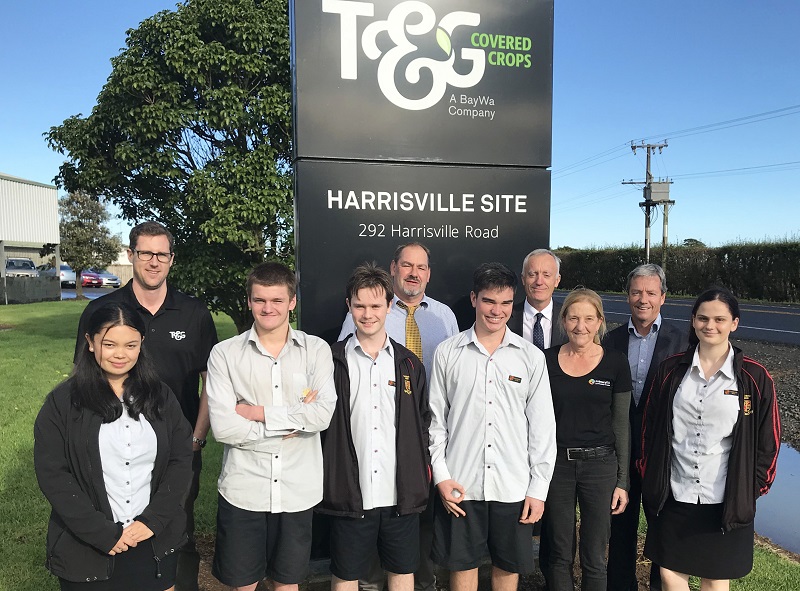
Team effort: Back row from left, T&G Global’s Andrew Hutchison, Pukekohe High Agriculture & Horticulture Department head Dave Matthews, Principal Richard Barnett and Hunua MP Andrew Bayly.
Front row from left, Carmen Nolan, Keegan Neate, Eli Smith, Jack Haddon, Primary ITO’s Kay Airey and Christine Adams.
.jpg)
Pukekohe High students Eli Smith, Keegan Neate, Jack Haddon, Carmen Nolan and Christine Adams.
Kay Airey who supplied this article is hoping to garner interest from the indoor growing community in terms of being part of the 2020 organisation work placements, and ongoing years of growers’ partaking in the programme. If the student numbers grow as hoped, they will we will need an additional number of growers each year. Kay is looking for grower mentors for students – university study and industry training in terms of career planning options. If growers are interested please contact Kay, details below:
Article content and Images supplied by Kay Airey
Training Adviser
T: 0800 20 80 20 | M: +64 27 405 2032 | F: 0800 691 112
E: kay.airey@primaryito.ac.nz | W: http://www.primaryito.ac.nz
Building 1, Unit C, Level 1, 4 Pavilion Drive, Mangere, Auckland 2022
PO Box 106, Albany Village, Auckland 0755
I appreciate your comments. Please feel free to comment below or on the grower2grower Facebook page:
https://www.facebook.com/StefanGrower2grower/
CLASSIFIED
Subscribe to our E-Zine
More
From This Category
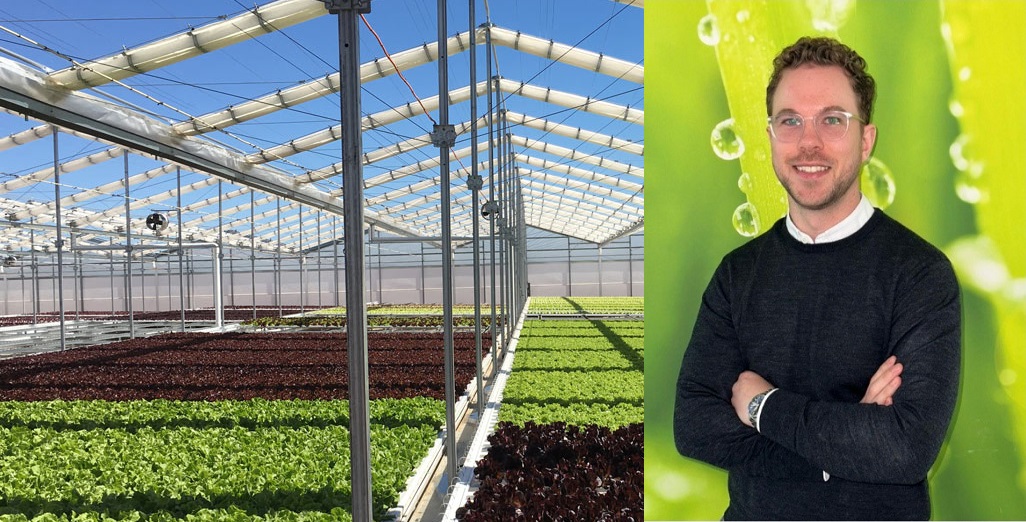
Michael Bednarz new Powerplants Australia CEO
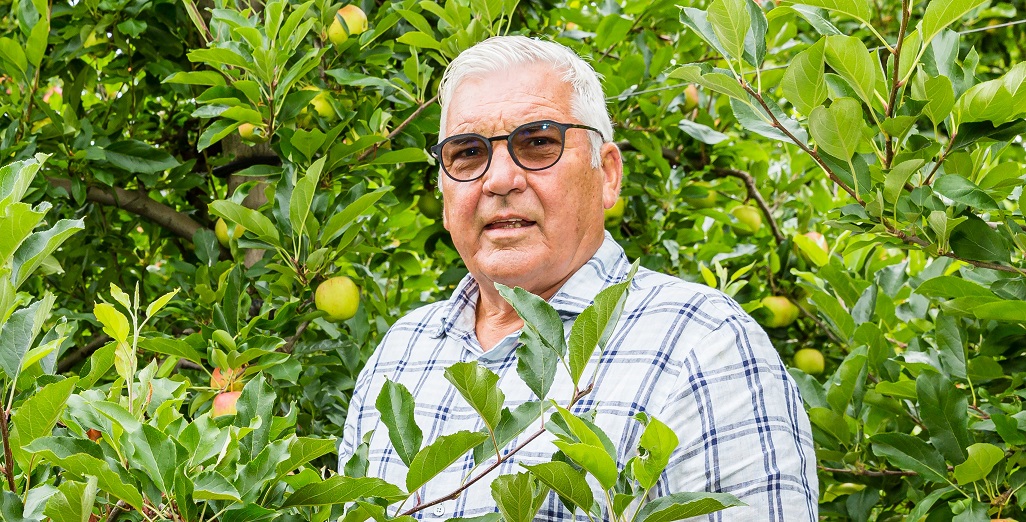
Te Mata Exports Announces Retirement of Founding Director Murray Tait

Powerplants and RTF Climate Announce Strategic Partnership for the APAC Region

Local florist amongst impressive young horticulturists competing in Karaka
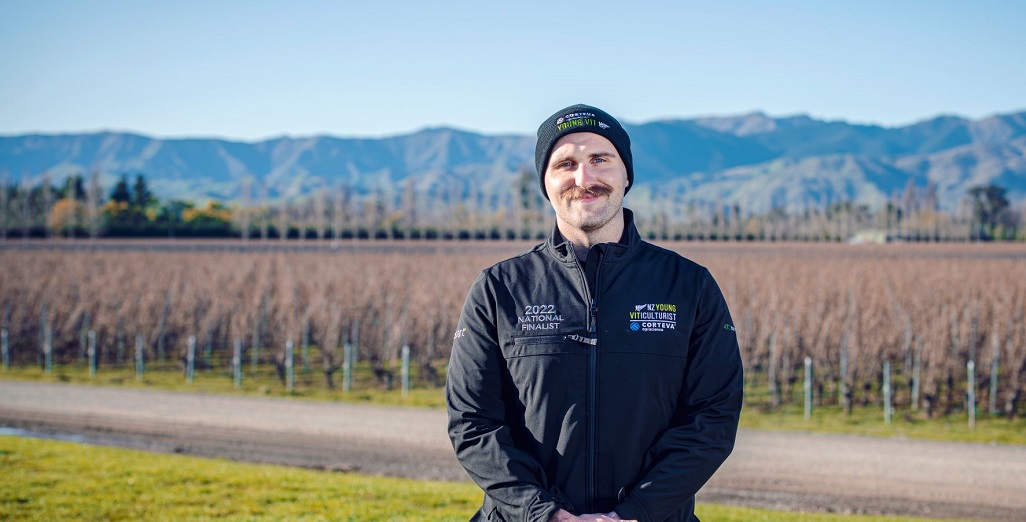
Toasting Tahryn, 2023 Young Horticulturist finalist.
